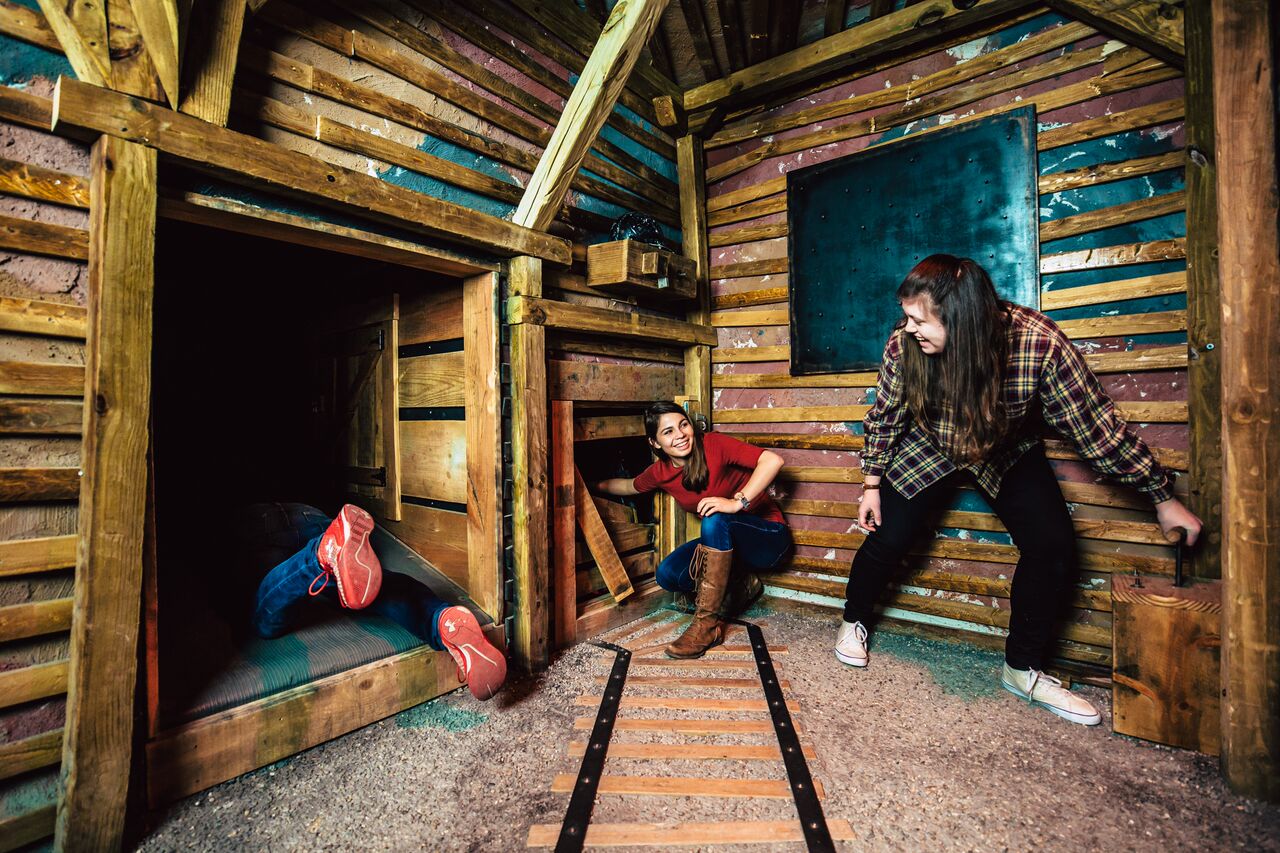Thrilling Escape Room in Minneapolis Mall of America-- Get Now
Group Methods: Just How to Team up Efficiently in an Escape Space
Groups need to actively pay attention to each member's understandings, appoint functions that line up with private toughness, and preserve regular check-ins to ensure emphasis and stop redundancy. By cultivating an atmosphere that values communication and adaptability, teams can substantially enhance their performance and success prices.
Establish Clear Communication

To promote clear interaction, it is necessary to designate a main point of get in touch with for information circulation. This role entails summarizing findings and recommended methods to guarantee everybody continues to be on the very same page. In addition, taking on an organized technique to conversations can prevent chaotic exchanges. Short, focused updates from each team participant can keep the group informed without frustrating them with details - best escape room.

Designate Roles Purposefully
While clear interaction sets the foundation for reliable team effort, designating roles tactically ensures that each group member's toughness are made use of successfully. In an escape room scenario, the time-sensitive and intricate nature of obstacles requires a well-organized technique to task delegation. By identifying and leveraging private proficiencies, groups can optimize their analytical capabilities and improve general efficiency.
First, analyze the one-of-a-kind abilities and attributes of each participant. For instance, someone with an eager eye for information may master finding surprise things, while a logical thinker could be better fit to addressing puzzles - best escape room. It's similarly important to have a leader who can manage progress, take care of the timeline, and make crucial calls when needed. This role usually needs solid business and social abilities.
Second, make sure that functions are versatile and versatile. As new obstacles arise, the team must be able to pivot, reallocating jobs as needed. This flexibility helps preserve energy and protects against traffic jams that could occur as other a result of rigid duty assignments.
Eventually, a calculated technique to role project not just makes best use of the strengths of each staff member yet likewise fosters a natural atmosphere, driving the team in the direction of an effective getaway.
Use Diverse Skills
Acknowledging and utilizing the diverse abilities within your group can significantly elevate your efficiency in an escape area. Each team participant brings one-of-a-kind toughness to the table, and properly leveraging these capacities can quicken analytic and boost overall efficiency. For instance, an employee with solid analytical skills could succeed at understanding complicated codes or patterns, while another with eager observational capacities might swiftly find concealed clues that others might ignore.
Encourage group participants to voice their insights and concepts Click This Link without delay, guaranteeing that all potential options are considered. In addition, designating tasks that align with each member's strengths can protect against bottlenecks and make sure that development is continuous.
Furthermore, variety in abilities frequently equates to diversity in believing designs, which is very useful in a getaway room setup. While some difficulties may need rational thinking and precision, others might take advantage of imaginative and side thinking. By identifying and leveraging this variety, teams can deal with a more comprehensive variety of obstacles better, consequently enhancing their chances of a successful retreat.
Manage Time Successfully

Determine noticeable challenges and divide tasks based on group participants' toughness, making certain that no one is idle. This technique can assist keep the group focused and protect against time from slipping away unnoticed.
In addition, stay clear of one-track mind. If a puzzle is taking as well long, rotate group members or move on to an additional difficulty, returning later with fresh point of views. Communication is paramount-- maintain everyone upgraded on resolved problems and continuing to be tasks to avoid repetitive efforts.
Lastly, utilize any type of hints or ideas sparingly best site yet strategically - best escape room. Recognizing when to request aid can save important time. By sticking to these time administration concepts, groups can significantly enhance their possibilities of an effective and delightful retreat room experience
Debrief and Show
Representation is an essential aspect of team growth and improvement in the context of getaway spaces. As soon as the challenge is completed, whether successfully or otherwise, it is critical for the group to take part in a structured debriefing session. This procedure enables staff member to evaluate their performance, recognize toughness, and pinpoint areas for renovation.
Begin the debrief by discussing what went well. Highlight details circumstances of efficient interaction, analytical, and partnership. Recognizing these positive habits enhances them and motivates their repeating in future obstacles.
Go over moments of complication, miscommunication, or ineffective methods. Motivate an open and positive dialogue where group participants can share their viewpoints without anxiety of objection.
Final Thought
In conclusion, successful cooperation in an escape area is asserted upon clear interaction, calculated duty tasks, the effective utilization of diverse abilities, and competent time monitoring. By producing a natural and adaptive team setting, the likelihood of efficiently solving challenges and attaining the goal of running away the room is significantly improved.